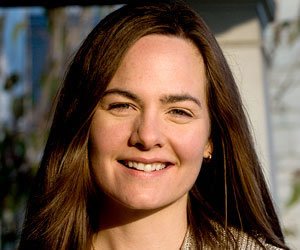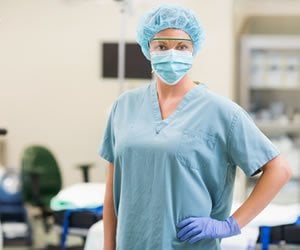
Love and Happiness… And Medicine? Our Experience in the Couples Match
We were in the same class in medical school. It was your typical story. Boy ... Read more
Kara Hessel
Updated June 26, 2022 by Kara Hessel

We were in the same class in medical school. It was your typical story. Boy ... Read more
Kara Hessel
Updated June 26, 2022 by Kara Hessel

I was in the middle of a fairly busy day on the palliative care ward, ... Read more
Romesa
Updated June 26, 2022 by Romesa

Though the emphasis of the medical school application process lies on academic achievement, there are ... Read more
Anubodh “Sunny” Varshney
Updated June 26, 2022 by Anubodh “Sunny” Varshney

After coming home from a long day at the library studying for my cardiology exam, ... Read more
Madeline Minh
Updated June 26, 2022 by Madeline Minh

The sub-internship is a crucial rotation for all medical students, no matter which specialty they ... Read more
Anubodh “Sunny” Varshney
Updated June 26, 2022 by Anubodh “Sunny” Varshney

Many medical students cheerfully expect to be earning a generous income as they begin their ... Read more
Brian Wu
Updated June 26, 2022 by Brian Wu

What You Should Know is an ongoing series covering a range of informational topics relevant ... Read more
Brian Wu
Updated June 26, 2022 by Brian Wu

Interview season. The time of year that roads and skies swarm with the best and ... Read more
Myers Hurt
Updated June 26, 2022 by Myers Hurt

The thrill and responsibility of holding someone’s life in your hands, the ability to act ... Read more
Richard Reich
Updated June 26, 2022 by Richard Reich

Winter break is the perfect time for medical students to take a step back to ... Read more
Anubodh “Sunny” Varshney
Updated June 26, 2022 by Anubodh “Sunny” Varshney

The transition to clinical clerkships in medical school comes after two years of lectures, in-class ... Read more
AJ Nguyen
Updated June 26, 2022 by AJ Nguyen

Dr. Christine Montross is Assistant Professor of Psychiatry and Human Behavior and the Director of ... Read more
Christy Duan
Updated June 26, 2022 by Christy Duan

By Michelle Finkel, MD with CrispyDoc You put your heart and soul into your compelling, ... Read more
Michelle Finkel
Updated June 26, 2022 by Michelle Finkel

$176,000. It’s a number newly-minted physicians or those in the process of becoming a doctor ... Read more
Student Loan Hero
Updated June 26, 2022 by Student Loan Hero

I was about to burst with excitement the minute I started medical school. I’m pretty ... Read more
Adelle
Updated June 26, 2022 by Adelle

Professional school is hectic. Very hectic. Most programs require the dedication that is equivalent to ... Read more
David Nguyen
Updated June 26, 2022 by David Nguyen

Many students arrive at medical school with a bias that their liberal arts education has ... Read more
Michelle Finkel
Updated June 26, 2022 by Michelle Finkel

Most people wouldn’t normally think of medical school as a risky investment. Sure, there are ... Read more
AJ Nguyen
Updated June 26, 2022 by AJ Nguyen

It is that time of year again. Medical school students across the country are preparing applications ... Read more
Jeff Steiner
Updated June 26, 2022 by Jeff Steiner
Current phase of the application cycle.
You are viewing information for the Early Prep phase of the application timeline.